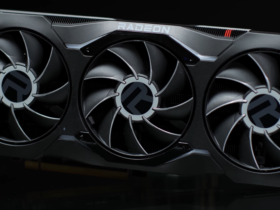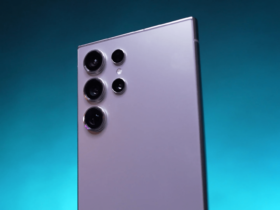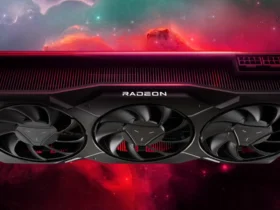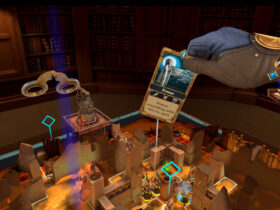 In a recent on-stage dialogue, Richard Dawkins and Neil deGrasse Tyson spent a great time discussing various philosophical and cultural aspects of science and the impact of its discussing while speculating on the relevance of the human race in the greater scheme of the universe. Within all this heavy discussion, Dawkins speculated that our entire perception of the universe is relevant to how we mostly experience it. He uses the example of veteran pilots that claim to feel that as if the wings of the plane are extensions of their own bodies. That they feel like they are the ones flying, not the airplane. He goes on to speculate how this aspect of human psychology will impact doctors who use virtual reality as a means of conducting surgery.
In a recent on-stage dialogue, Richard Dawkins and Neil deGrasse Tyson spent a great time discussing various philosophical and cultural aspects of science and the impact of its discussing while speculating on the relevance of the human race in the greater scheme of the universe. Within all this heavy discussion, Dawkins speculated that our entire perception of the universe is relevant to how we mostly experience it. He uses the example of veteran pilots that claim to feel that as if the wings of the plane are extensions of their own bodies. That they feel like they are the ones flying, not the airplane. He goes on to speculate how this aspect of human psychology will impact doctors who use virtual reality as a means of conducting surgery.
Tyson quickly adds that the technology behind virtual reality could get to a point that doctors will be totally immersed the world of the human body as if they were there, freely walking around. Tyson goes on to argue that this would require an entirely new perception of how physics itself works on such a small scale, requiring deep understanding of scientific concepts like surface tension. Dawkins humorously adds that virtual actions could translate in to physical actions on a microscopic level, imagining a doctor virtually wielding an ax to hack away at a tumor, while in reality tiny machines do the actual work.
This concept of virtual actions translating into physical actions has already become a reality in the 21st century. It also has introduced a great deal of tension among champions of human ethics that are quick to point out how such immersion could desensitize the impact of the real world results. The use of Predator Drones for military airstrikes is a prime manifestation of this concern. The potential of the application of VR, such as Dawkins and Tyson discussed, has amazing potential but as we find ourselves in virtual worlds that can impact the physical one, it will become increasingly important to step back and question what the full impact is on the real one.
Clicca sulla copertina per leggere
















